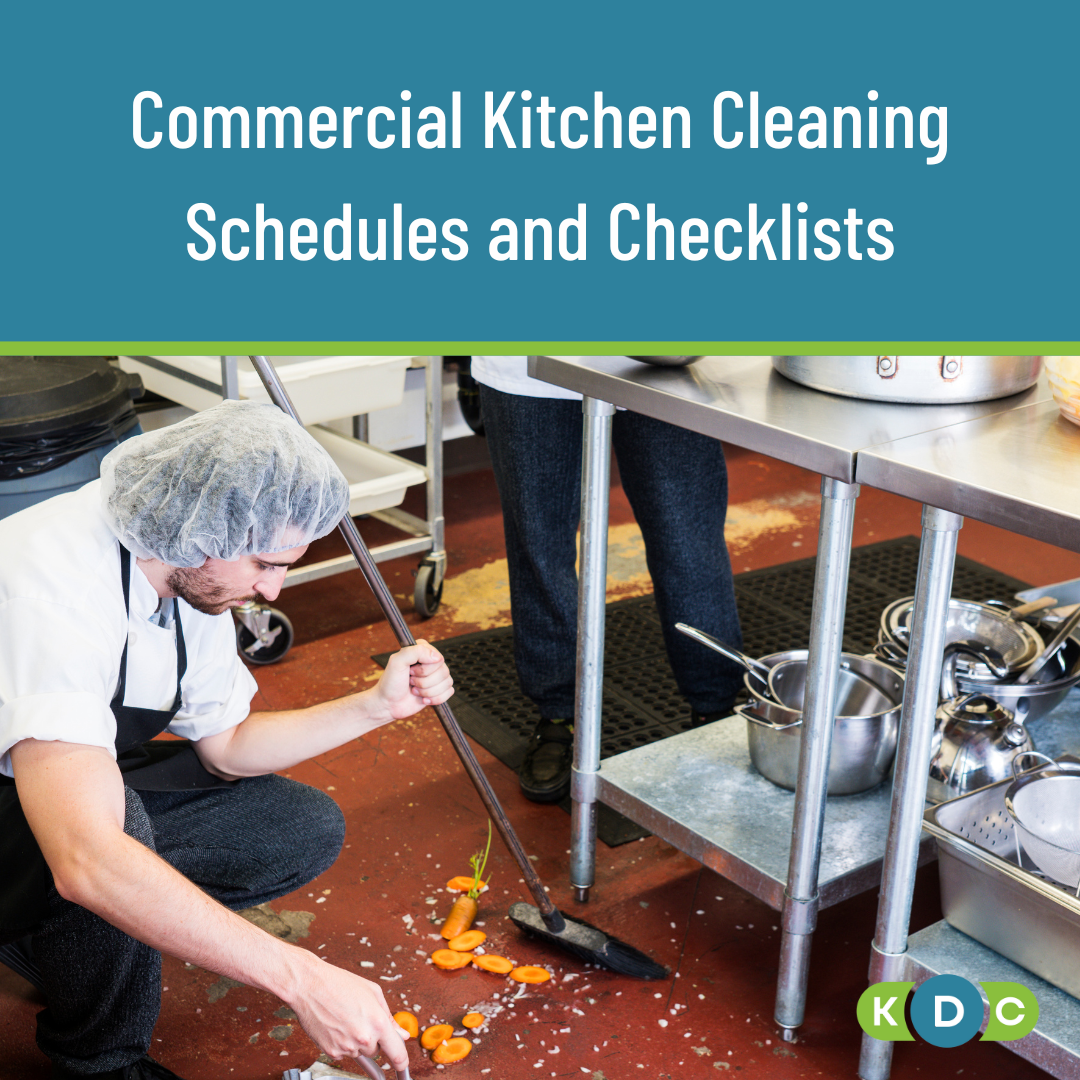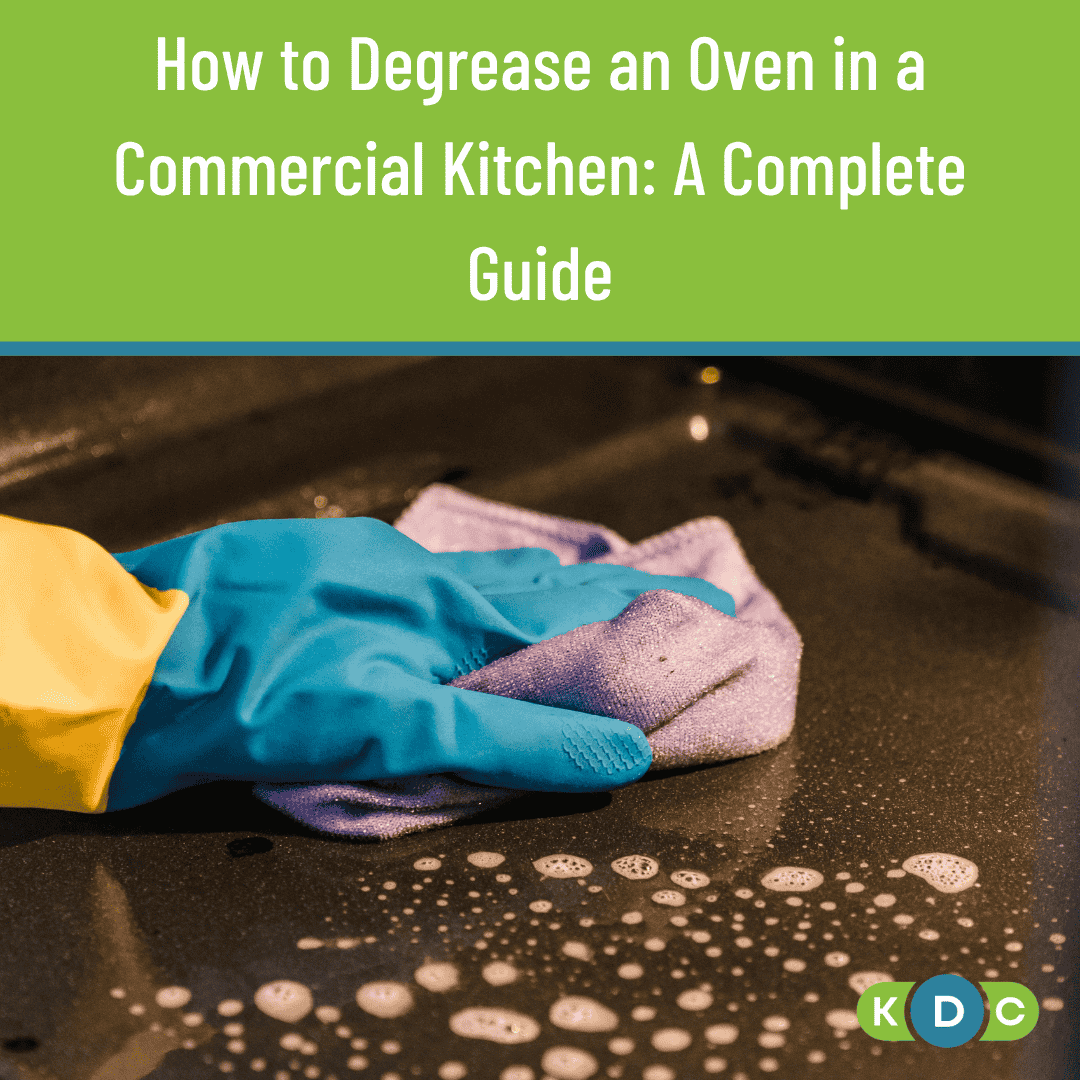Commercial Kitchen Cleaning Schedules and Checklists
Commercial kitchen hygiene guide covering FSA requirements, two-stage cleaning process, and daily, weekly and monthly cleaning checklists (free UK downloads).
When it comes to running a commercial kitchen, cleanliness is not only a legal requirement, it’s the cornerstone of any successful catering business. A well-structured kitchen cleaning schedule prevents cross-contamination, reduces the risk of foodborne illnesses, and keeps you compliant with UK food safety regulations and Food Standards Agency (FSA) guidelines.
A comprehensive commercial kitchen cleaning checklist isn’t just paperwork – it’s your safety net for maintaining hygienic standards that’ll keep your customers happy and the health inspectors nodding in approval.
In this blog, we’ll walk you through everything you need to know about commercial kitchen cleaning schedules. Plus, we’ve included downloadable cleaning templates to make implementing these systems as easy as pie.
Legal Requirements and the Benefits of a Robust Cleaning Schedule
Here’s the brass tacks: all professional caterers in the UK must stick to Food Standards Agency regulations. Get it wrong, and you’re looking at temporary closure, licence revocation, or even prosecution – proper nightmare stuff.
Remember the “Four Cs” of food hygiene? Cleaning, Cooking, Chilling and Cross-Contamination. Thorough cleaning practices are your first line of defence against contamination and keeping both customers and staff safe.
A detailed cleaning schedule brings some serious benefits:
- Nothing gets missed in a busy kitchen (we’ve all been there during the Friday rush)
- Creates accountability and fairness for your team
- Helps prioritise tasks and shows due diligence to inspectors
- Promotes consistency and improves food quality
- Keeps pests at bay and maintains health and safety standards
Think of your commercial kitchen cleaning frequency guide and checklist as your kitchen’s best mate – reliable, organised and there when you need it most.
Understanding the Two-Stage Cleaning Process
UK law requires a two-stage cleaning process on food-contact surfaces to properly remove bacteria and viruses. No shortcuts here, sadly.
Stage 1: Cleaning
Remove visible dirt by spraying the surface with sanitiser and wiping with blue roll. Simple enough, but don’t only do this and skip stage two.
Stage 2: Disinfecting (Sanitising)
After cleaning, re-spray with sanitiser and leave for the recommended contact time to kill bacteria effectively. Wiping it off straight away won’t do the job, so be patient.
Top tip: Aim for a 30-second contact time for practical reasons. Your sanitisers should meet BS EN 1276 or BS EN 13697 British standards. Dodgy stuff from the cash and carry won’t do.
Also, always follow manufacturer instructions for dilution ratios. Getting it wrong means your cleaning chemicals won’t work properly, or worse, could be dangerous. Never mix chemicals and always add chemicals to water, not the other way round.
Blue roll prevents cross-contamination from cloths, though hot soapy water with cloths and scourers works a treat for deep cleaning at day’s end.
Daily Commercial Kitchen Cleaning Checklist
The “clean as you go” principle isn’t just good advice, it’s essential. Daily cleaning tasks focus on high-touch surfaces and food preparation areas to stop dirt, grime and bacteria from building up.
Essential Daily Tasks
- Wipe down and sanitise all food preparation areas and worktops after each use.
- Wash dishes, cutlery and cooking equipment immediately (don’t let it pile up like Monday morning’s regrets).
- Empty bins regularly and disinfect waste areas.
- Clean spills on floors, surfaces, and appliances straight away.
- Sweep and mop floors daily, especially after cooking.
- Clean visible areas of appliances like microwaves, toasters and kettles.
- Wipe and sanitise fridge interiors between shifts.
- Clean sinks, taps and draining boards every shift.
- Brush grills to remove grease and food debris between cooking sessions.
- Switch cutting boards between different tasks and clean knives.
- Properly seal and cover all ingredients before fridging overnight.
- Sweep storage areas and walk-in refrigerators.
- Wash aprons and chef hats (hygiene starts with what you wear).
- Disinfect door handles and light switches – the high-touch culprits.
Pro tip: Offer your team our downloadable daily kitchen cleaning checklist for commercial kitchens that they can print, tick off and sign. Nothing beats accountability with a proper paper trail.
Weekly Commercial Kitchen Cleaning Checklist
Weekly cleaning is where you roll up your sleeves for the proper deep clean of appliances and areas that don’t need daily attention but can’t be ignored.
Weekly Tasks That Need Doing
- Deep clean appliances: ovens, microwaves and dishwashers get the full treatment.
- Clean inside kitchen cupboards, removing dust and debris.
- Properly mop or scrub floors to shift stubborn build-up.
- Clean hobs and extractor fans – grease doesn’t shift itself.
- Descale kettles and coffee machines (your staff will thank you).
- Sort through the fridge and bin expired products and leftovers.
- Wash rubbish bins and let them air dry.
- Sanitise drying boards and dish drainers.
- Clean exteriors of large appliances.
- Dust light fittings and surfaces.
- Polish glass surfaces until they sparkle.
- Remove grease stains from walls.
- Give sink areas a thorough clean.
- Clear drains with proper drain cleaners.
- Do a full fryer clean, including an oil change.
- Clean grease traps.
- Wipe down doors.
Click here for our downloadable weekly cleaning checklist.
Monthly Commercial Kitchen Cleaning Checklist
Monthly tasks are the big jobs that keep your kitchen running smoothly. Think of them as your kitchen’s monthly care routine.
Monthly Deep Cleaning Essentials
- Deep clean fridges and freezers: empty everything, clean shelves and drawers, chuck expired food away.
- Clean dishwashers and glassware cleaners with a proper cleaning cycle.
- Tackle hard-to-reach spots like cabinet tops and behind appliances.
- Thoroughly clean and sanitise waste bins.
- Organise cupboards and drawers.
- Spot-clean wall tiles and degrease surfaces where cooking grease gathers.
- Clean drain pans and tubs to prevent nasty build-up.
- Maintain waste disposal units.
- Descale dish and glassware washers with specialised agents.
- Inspect ventilation and extractor fans for dirt and grime (every 30-90 days, more for deep fryers).
- Wash walls and ceilings.
- Sharpen meat and cheese slicers.
- Clean and sanitise ice machines.
- Wipe down dry storage areas.
- Check cleaning stock and reorder essentials.
- Change pest traps.
- Refill first aid boxes.
Some areas need quarterly or bi-annual attention. For example, you may need professional commercial oven deep cleaning every six months. Download our monthly kitchen cleaning schedule template and use it so that nothing slips through the cracks.
Beyond the Schedule: Essential Products and Best Practices
Having the right cleaning products makes all the difference between a proper clean and just moving dirt around.
Essential Cleaning Arsenal
- Disposable blue roll (prevents cross-contamination)
- Sponges and scourers
- Professional-grade mops
- Vacuum cleaner
- Griddle brush
- Various cleaning chemicals (drain, surface, oven, floor)
- Antibacterial hand soaps
- Hand towel dispensers
Again, your disinfectants and sanitisers should meet BS EN 1276 or BS EN 13697 standards. Never compromise on quality.
Colour-coded cleaning equipment prevents cross-contamination by ensuring the specific kit stays in designated areas. Steam cleaners and jet washers handle the heavy-duty jobs like stubborn stains on splashbacks and flooring.
Food Storage Golden Rules
- Ready-to-eat foods should go above raw foods
- Washed salads go above dirty ones
- Everything must be at least 15cm off the floor
- Store away from chemicals and cleaning supplies
- Use the FIFO rotation (First In, First Out)
- Cool cooked food quickly and date everything
Common Mistakes to Dodge
- Using the same cloth everywhere (stick to disposable blue roll)
- Not giving sanitiser enough contact time
- Skipping equipment deep cleans
- Ignoring expiry dates on cleaning products
Staff hygiene matters, too. This means thorough handwashing, clean clothes and aprons, covering cuts, tying back long hair and ditching jewellery in food areas.
Also, note that some deep cleaning or specialist maintenance (e.g., ventilation ducting, extractor fans) may require professional contractors as per Health and Safety Executive (HSE) advice.
How We Can Help
Maintaining exceptional cleanliness in your commercial kitchen isn’t negotiable. It keeps your business hygienic, compliant and safe for customers. Regular cleaning, sticking to food safety regulations, and proper use of cleaning products and equipment are what separate the pros from the amateurs.
Need a proper sort-out?Give us a bell for a free quote on professional cleaning services – the stress-free way to maintain health and safety standards and keep your kitchen spotless. You do the cooking; let KDC Hygiene Ltd handle the cleaning.













